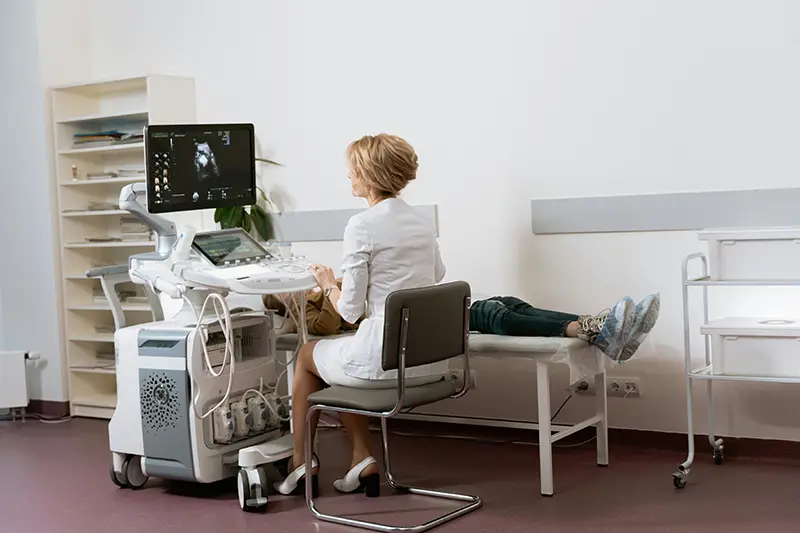Table of Contents
- Introduction
- Understanding Menstrual Pains
- Endometriosis: A Complex Gynecological Disease
- The Crucial Role of Gynecological Consultations
- Diagnosis and Treatment of Endometriosis
- Prevention and Education: Pillars of Women’s Health
- The Impact of Endometriosis on Fertility
- Testimonials and Case Studies
- Conclusion
- FAQ
Gynecological Follow-up
The importance of gynecological management in the treatment of menstrual pains and endometriosis is a subject of great relevance in the field of women’s health. This article aims to deepen the understanding of these issues, emphasizing the importance of regular consultations with a specialist to ensure the well-being and reproductive health of women.
Introduction to Gynecological Health
Women’s health encompasses a variety of areas, but menstrual pains and endometriosis represent two of the most common and impactful issues. Although often minimized or misunderstood, these conditions require specialized attention and care to prevent long-term complications.
Understanding Menstrual Pains
Menstrual pains, or dysmenorrhea, are a common symptom among women of childbearing age. They can range from mild to severe and significantly affect the quality of life. Although they are generally considered a normal part of the menstrual cycle, it is crucial to distinguish usual pains from warning signals of more serious conditions such as endometriosis.
Endometriosis: A Complex Gynecological Disease
Endometriosis is a condition in which tissue similar to that of the uterine lining grows outside the uterus, causing pain, inflammation, and, in some cases, infertility. This disease can be debilitating and requires early recognition and treatment to improve prognosis.
The Crucial Role of Gynecological Consultations
Regular visits to the gynecologist play a fundamental role in the early detection of endometriosis and other gynecological conditions. A thorough evaluation, including medical history and physical exams, allows for an accurate diagnosis and the initiation of appropriate treatment.
Diagnosis and Treatment of Endometriosis
The diagnosis of endometriosis can be complex and require exams such as ultrasound, MRI, or laparoscopy. Treatment options vary depending on the severity of symptoms and can include medications for pain management, hormonal treatments, or surgery.
Learn More: The Importance of an Early Diagnosis of Endometriosis
Prevention and Education: Pillars of Women’s Health
A significant part of gynecological care lies in educating patients about their sexual and reproductive health. Preventing sexually transmitted diseases, advising on contraception, and managing menopause symptoms are essential for maintaining good gynecological health.
The Impact of Endometriosis on Fertility
Endometriosis can affect fertility, but it’s important to emphasize that many women with the condition can conceive naturally or with medical assistance. The key lies in early diagnosis and management to optimize the chances of pregnancy.
Learn More: Endometriosis and Pregnancy
Testimonials and Case Studies
The stories of women who have experienced endometriosis or other gynecological issues not only provide moral support but also raise awareness of the importance of adequate medical care. These testimonials highlight the challenges and successes encountered on the path to healing and well-being.
Conclusion: The Importance of Listening and Acting
Taking care of one’s gynecological health is an act of self-care and prevention. Menstrual pains and endometriosis, when properly managed, do not have to limit the quality of life. It’s essential to listen to one’s body and seek medical assistance for concerning symptoms.
FAQ
At what age should one consult a gynecologist for the first time?
It is recommended to consult a gynecologist during adolescence, generally between the ages of 15 and 18, or earlier if specific symptoms arise.
What is the recommended frequency of gynecological visits?
An annual visit is advised, although the frequency may vary based on individual health status and specific needs.
How can you distinguish normal menstrual pain from more serious symptoms?
Pain that disrupts daily activities, changes in nature, or is accompanied by other symptoms requires evaluation by a specialist.
What are the treatment options for endometriosis?
Treatment options range from managing pain and inflammation to surgical interventions and hormonal treatments tailored to each case.







